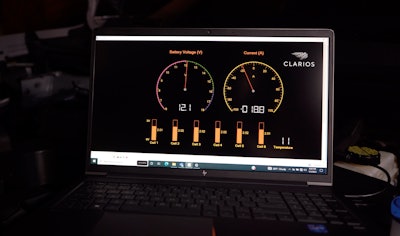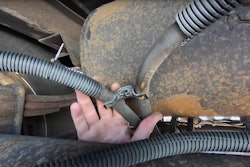
Along with brake failures and tire problems, electrical systems are among the most common causes of truck breakdowns. When a bad battery is the culprit, a simple and relatively inexpensive component can lead to costly and lengthy downtime.
Proactive fleet managers change their fleet’s batteries out during preventive maintenance schedules whether the batteries are failing or not. While this strategy reduces the chance of a truck and driver being stranded, it also leads to unnecessary cost and added waste. Other fleets rely on battery testers before sending a rig back out onto the road, but those readings only provide a point-in-time analysis of the battery’s current state rather than its overall health.
Unfortunately, batteries rely on “dumb” technology relative to other systems and components that use real-time monitoring and can automatically report issues well before they become major problems.
Clarios has set out to change all that. The company, which produces one-third of all batteries for passenger cars, is in fleet testing to develop its Smart AGM (absorbent glass mat) battery for commercial vehicles. The Smart AGM relays battery status via CAN or Bluetooth connectivity and sends an alert through the fleet management software system when a battery needs replacement.
In addition to state of charge, Smart AGM monitors individual cell performance to track overall battery health and provides predictive assessments to fleet managers. Clarios claims this allows fleets to be smarter about replacement decisions, maximize battery life and reduce the occurrence of battery-related roadside breakdowns.
Clarios’ Smart AGM battery is in limited production beginning this year, and the company plans to begin full production in 2024.









